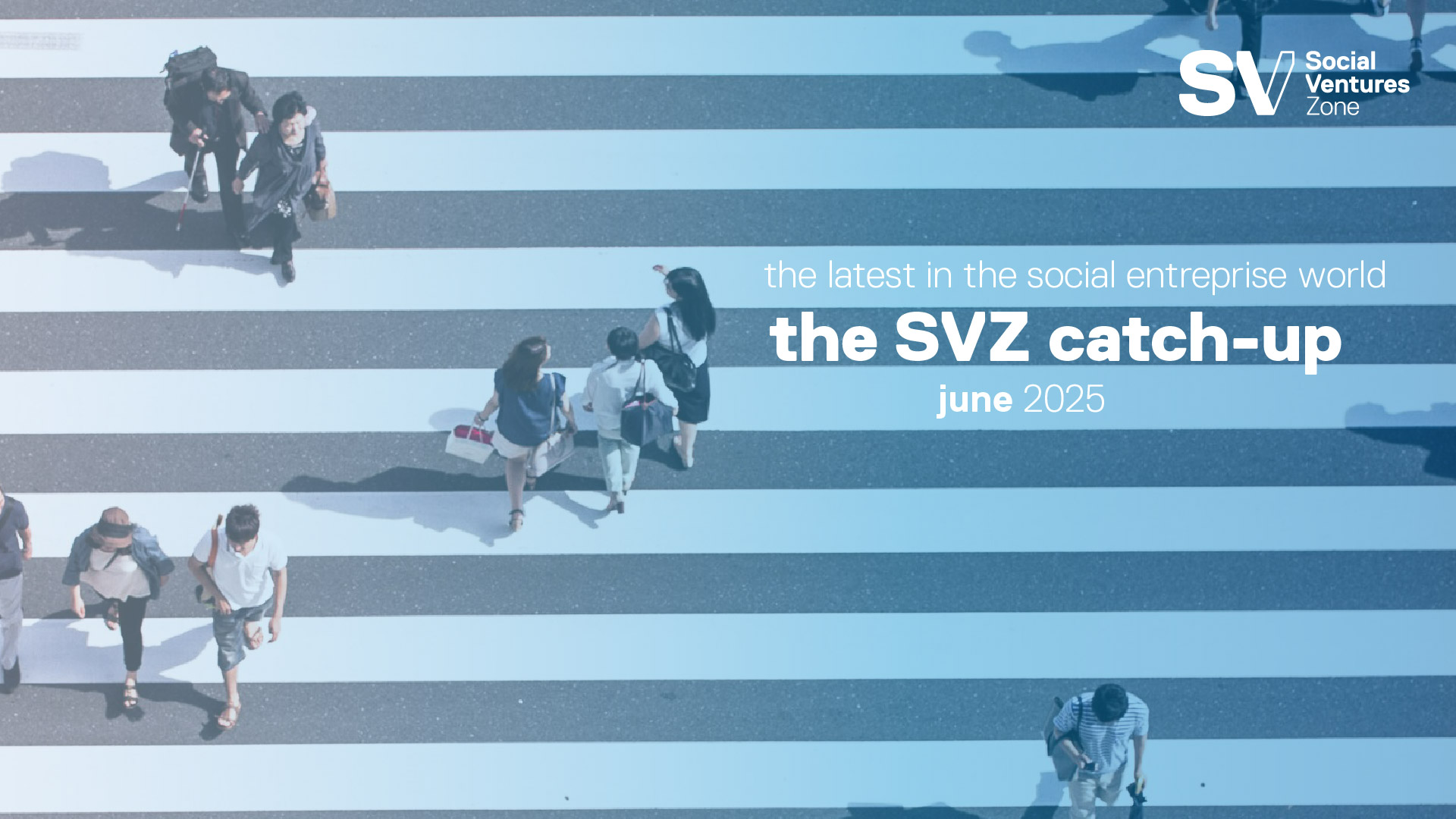The SVZ Catch-Up: June Edition
The latest news updates from the world of social enterprise for June 2025
By: Nika Bakhtiari and Aqsa Rehman
June 30th, 2025
The summer months are here, but that doesn't mean the social enterprise world is slowing down! There's lots going on, and we want to help you get your head around it with this month's SVZ Catch-Up. Read on for the latest on the current trade-war, investments in social entreprise, and more!
French savers' investments climb to €29bn in 2024
French savers invested €29.4bn in solidarity-based finance in 2024, up nearly €2bn from 2023, according to the Social Impact Finance Barometer 2025 released by FAIR and La Croix. While this marks steady growth, such investments still account for only 0.46% of household financial savings. Solidarity finance includes direct investments in social enterprises, microfinance, and employee savings schemes, which made up 60% of the total.
The ecosystem is supported by regulatory mandates such as the "90/10" employee funds and recent requirements for social options in life insurance. FAIR calls for stronger fiscal incentives to broaden participation and stresses the need to raise awareness that returns and impact can go hand in hand. In 2024, such investments supported housing for 2,800 people, 21,000 jobs, and 2,400 hectares of organic farming.
$2.4 million AI Business Catalyst program at Toronto Region Board of Trade
FedDev Ontario is investing $2.4 million to stand up the AI Business Catalyst (AIBC), a program that will help 75 companies and 460 participants adopt artificial‑intelligence tools. Run by the World Trade Centre Toronto, the AIBC pairs founders with experts and ecosystem partners to fast‑track the deployment of generative AI and analytics solutions. Through tailored workshops, one‑on‑one mentorship, and access to generative AI and analytics platforms, founders will partner with AI experts and ecosystem players to identify use cases, develop pilot projects, and adopt AI responsibly.
The program is part of Canada’s broader Regional Artificial Intelligence Initiative, totalling $200 million over five years, with nearly $60 million earmarked for Southern Ontario, bolstering the region's position as a North American AI hub of over 450 companies and 60,000 jobs created in the last five years.
Deloitte still sees a 'modest recession' in 2025 forecast due to trade war
In its June 25 summer outlook, Deloitte Canada forecasts a modest recession in the second and third quarters of 2025, as U.S. tariff uncertainty weighs on exports and manufacturing. Chief Economist Dawn Desjardins notes that early tariff exemptions for CUSMA‑compliant goods have softened the blow, avoiding “worst‑case" scenarios. Nonetheless, real GDP is projected to decline by 1.1% in 2025 before rebounding to 1.6% in 2026, while the unemployment rate may rise from 7.0% in May to 7.3% by autumn.
The report highlights regional disparities: Ontario and Quebec may experience slower growth, whereas energy-rich provinces could outperform due to stronger commodity exports. Deloitte cautions that persistent policy uncertainty could delay business investment and hiring, underscoring the need for continued trade‑policy clarity and infrastructure acceleration measures.
Anti-greenwashing rules bite as new public-complaint tool goes live
A year after the tougher Competition Act amendments (external link) came into force on June 20, 2024, Canadians can now file greenwashing complaints directly with the Competition Tribunal, bypassing the Competition Bureau. Major players like RBC scrapped its $500 billion sustainable-finance target and CPP Investments abandoned its 2050 net-zero pledge, citing uncertainty over “internationally recognized methodology” requirements.
ESG lawyers report that many firms are “revisiting their disclosures” to ensure they can substantiate claims or face penalties of up to3 % of global revenue. Critics warn that vague wording could chill genuine sustainability reporting, while proponents argue the rules “level the playing field” for truly green innovators.
Female founders outperform men in funding for social enterprises, Northeastern study finds
New research from Northeastern University reveals that female entrepreneurs raise significantly more funding than their male counterparts for social enterprises. Led by Assistant Professor Zhenyu Liao, the study analyzed crowdfunding data and conducted investor experiments, finding that women are perceived as more committed to pro-social goals. This perception leads to greater investor confidence in their ability to maintain mission alignment despite financial pressures.
The findings counter the broader trend of gender bias in venture funding, suggesting that social enterprise may be a domain where women hold a unique advantage. Liao hopes that the study will reframe the conversation around gender and entrepreneurial success in social enterprises.
